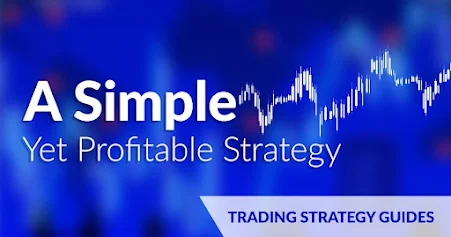The Top 5 Easy and Profitable Forex Strategies
Are you looking for an easy yet effective way to increase your earnings in the forex market? Read on to discover the five best forex strategies that will help you maximize your profits and achieve success.
Position Trading.
Position trading is a longer-term approach which involves “buying and holding” multiple currency pairs for extended periods of time.
The main advantage of position trading is that it captures the long-term trend in the market, allowing you to profit from both rising and falling prices.
It also eliminates the need for day-to-day decision making as you are only committed for a predetermined period of time.
Range Trading.
Range trading is the strategy of trying to profit from the price fluctuations within a well-defined range.
This strategy involves placing two separate trades, buying at the lower bound and selling at the upper bound.
The goal is to capitalize on any swings between these two prices so that you can make a net profit. The strategy works best when volatility is low and there are clear boundaries that define a current range.
Momentum Trading.
Momentum trading is a type of forex strategy that focuses on capturing gains through small but frequent price movements.
This forex strategy is based on the notion that prices tend to move in one direction for an extended period of time.
Momentum traders focus on rapid movements, identifying large shifts and riding those until the momentum changes direction. To be successful with this strategy, it’s important to identify markets that are trending up or down and use short-term strategies like stop loss orders to ride these waves.
Swing Trading.
Swing trading is another profitable forex strategy, as it allows traders to take advantage of longer-term movements in price trends.
This strategy involves taking positions lasting between a few days and several weeks, with swings that occur over the course of a few days or weeks.
Traders typically use technical analysis, such as chart patterns or Fibonacci retracement levels, to identify the right timing to enter and exit the market. Swing trading can be more time-consuming than other forms of forex strategy, but it offers the potential for large profits when executed properly.
Scalping.
Scalping is a high-frequency trading method which involves opening positions and closing them within a few minutes or hours.
Scalpers take every opportunity, no matter how small it may be, to make a profit, by utilizing tight stop losses and taking advantage of the smallest price movements in the market.
This strategy requires knowledge about financial markets, strong technical skills and good risk management abilities. However, when scalpers succeed in executing solid trades on consistent basis they can enjoy steady profits from their forex trading activities.
Conclusion
Speculation is a commercial operation consisting of buying merchandise, real estate, securities or public effects, with the intention of obtaining a profit in less than one day, through its subsequent sale at higher prices.
The speculator tries to maximize his benefit in the shortest possible time, minimizing the contribution of capital.
When you own or expect to have a firm cash position and you don't take any hedging, you are also speculating. Said action must be classified as passive or static speculation, unlike the previously stated, which refers to active or dynamic speculation.
According to Keynes, "successful speculation benefits the community, it is always extremely small in proportion to normal business. The successful speculator makes his profit by anticipating, not changing existing trends."
Although speculators do not alter the trend in the long term, in the short term (less than a day) their action can change the value of the titles. In the General Theory, it is considered that speculation, if it dominates the market, exerts a negative influence on the economic process. If they actually had it, they would become immensely rich.
The speculator's role is to take risks, and his role is the same as an insurance company that makes a profit, not because it claims to know more than individuals about life expectancy or fire risk, but because it takes the risk.
One of the most attractive markets for the speculator is the Futures Market. The high degree of financial leverage or "leverage effect" achieved in futures contracts makes them especially interesting for this type of agent.
For this reason, those who carry out operations of a speculative nature know that the significant multiplicative effect of capital gains will be very gratifying when the trend in prices is correctly forecast.
Precisely because of the high degree of leverage incorporated into futures contracts, and because of their symmetrical evolution with respect to the generation of profits and losses, speculators must know that the same multiplicative effect, but in the opposite direction, occurs when erroneously predicting the trend of the prices being, therefore, advisable to adopt precautionary measures as a complement to the speculative operation.
Financial speculation is an ancient activity.
The speculative game began to take a liking to the so-called "emerging economies", a term used to describe the economies of developing countries.
When he enters the country, a euphoric fever occurs that raises the economic temperature, everything goes up: the value of shares, real estate, the need for workers, their salaries, etc.
The general rise seems to have no end, and it continues until the day the catastrophe strikes. Many professionals consider that stock or financial speculation, in itself considered, is neither good nor bad.
Its ethical valence will be given by the ends it seeks, and by the means used.
Thus, speculation that only seeks immediate, private, or private returns will be the most opposite of the adventure of risking money in search of a profit that affects the social body.
In this sense, a positive speculation would be one that, analyzing a specific situation, examining future prospects, makes the decision to place the corresponding financial resources in this or that market, to obtain a legitimate personal and social benefit.


.png)
0 Comments